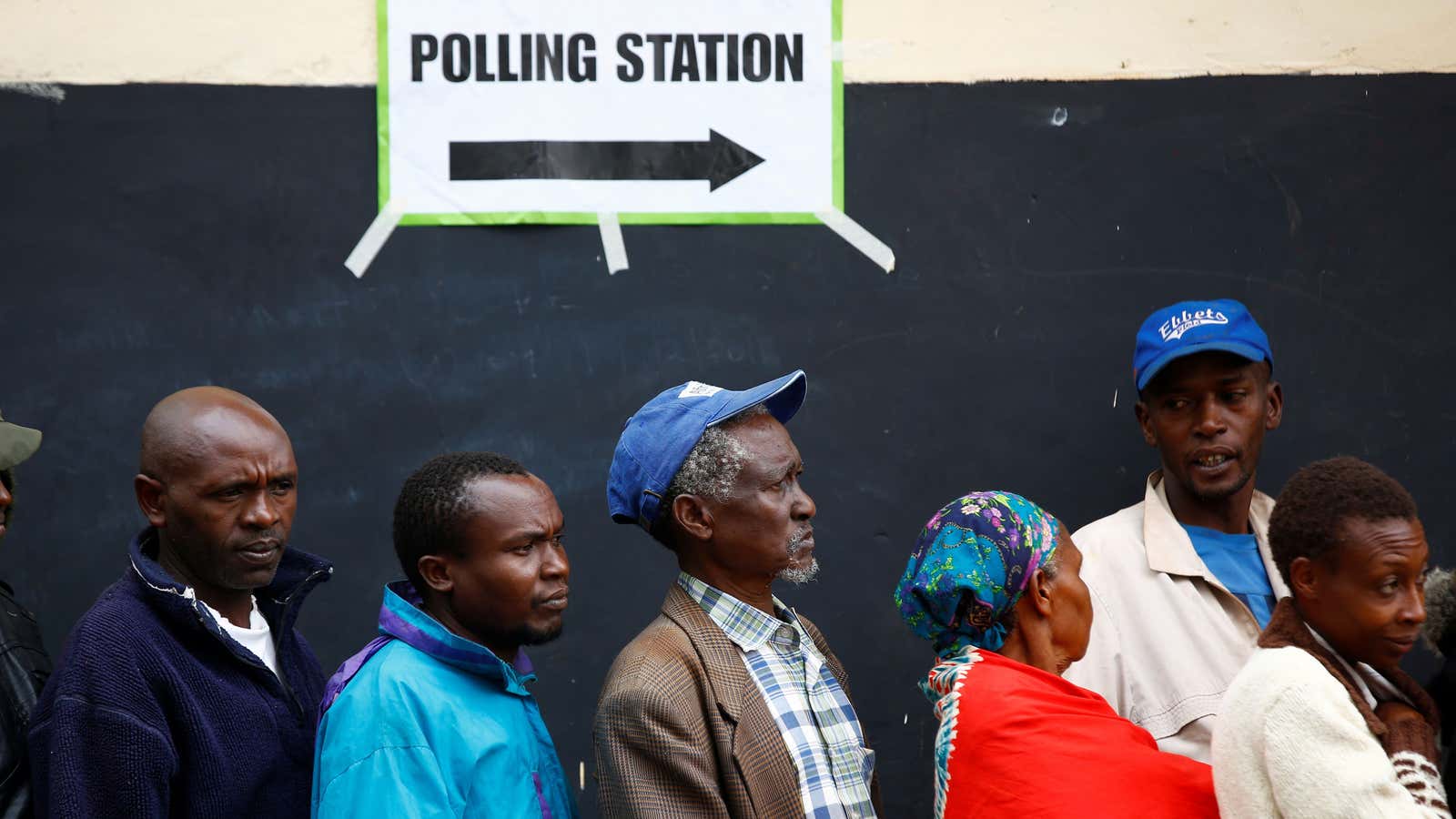Automated bots are increasingly muddying election cycles in Africa, disrupting conversations, distorting facts, and bringing into focus the changing dynamics of politics in the continent.
Bots on social media became an influential voice during crucial Africa polls over the last year, claims a report called How Africa Tweets from communications consultancy Portland. These bots, defined by some as a new form of media, are software programs that combine artificial intelligence with communication skills and intimate human behavior. Using them, one could amplify a specific conversation on social media outlets like Twitter and Facebook by posting videos, photos, and biased statements targeting particular hashtags and wordings.
In 10 elections across nine African nations which took place between June 2017 and March 2018, bots were used as important vessels for spreading misinformation and furthering negative narratives about major issues, candidates, and perceived electoral irregularities, say the report’s authors. In many countries, the chat bots undermined the influence of media outlets, independent bloggers, government entities, and even messages from politicians and campaigners themselves. And once the voting cycle was over, these bot armies turned their attention to issues elsewhere including outside Africa.
The report’s authors say their research was unable to identify specific bot sources or motivation for the deployment of the bots.
Of all the nations surveyed, the influence of the bots was most prevalent in Kenya. The country held two tightly-contested elections in August and October last year, which saw president Uhuru Kenyatta beat his rival, Raila Odinga, twice. In many ways, the election was fought across social media platforms, with both the government and the opposition using various tools to pitch their policies, provide spin, and shape their images. Fake news, which became a mainstay of the campaign, was peddled on WhatsApp; attack ads were widely shared on YouTube and Instagram, and political parties used Facebook Live and Periscope to engage voters.
But while vital conversations were taking place on digital platforms, automated accounts were by far the leading influencer during both votes. After the supreme court annulled the first ballot and called for a new presidential election, bots became even more widespread with their share of influence growing from 24.8% to 27.6%. This was less the case in nations like Rwanda, Angola, and Liberia, where journalists and politicians largely shaped the narrative around the polls.
This taxonomy of political bots showcases the growing force of bots in African politics, mimicking trends that are already taking place globally. During the US presidential elections in 2016, Russian Twitter bots spread fake news, while pro-Donald Trump chatbots overwhelmed those supporting Hillary Clinton five to one, according to researchers.
The worrying difference with Africa though is the impact: how online manipulation could the shape the events unfolding offline. While automated trolls in the US or Western nations might serve to inflate a fake message or flood a journalist or politician’s page with angry tweets, those messages could mean a matter of life and death in nations where ethnic and religious politics still rule.
This trend is especially critical in the post-Cambridge Analytica world, the data mining firm that ran campaigns on behalf of Kenya’s ruling party and collected data from millions of Kenyans to profile and target them with certain messages. The growing force of bots in Africa is also precarious as more governments rein in what’s being said and shared online, and deprive citizens of scrutinizing their own democratic processes through traditional media outlets.
The issue of bots has also taken on a new urgency in recent days as Twitter suspended millions of fake accounts. African leaders like president Paul Kagame of Rwanda lost about one-third of his followers in one day. And while Twitter allows bots to find their way into conversations, it would point out that hashtags and handles on the site are subject to scrutiny. This is in contrast to “dark social” apps like WhatsApp and Facebook Messenger, the most popular apps in Africa, where information shared is difficult to measure.
Robert Watkinson, Portland’s partner for Africa, told Quartz Twitter’s move is indicative of the wider conversation stakeholders including governments and technology companies should have in addressing malicious accounts and fake content online. “This is a debate we need to have—and urgently.”




